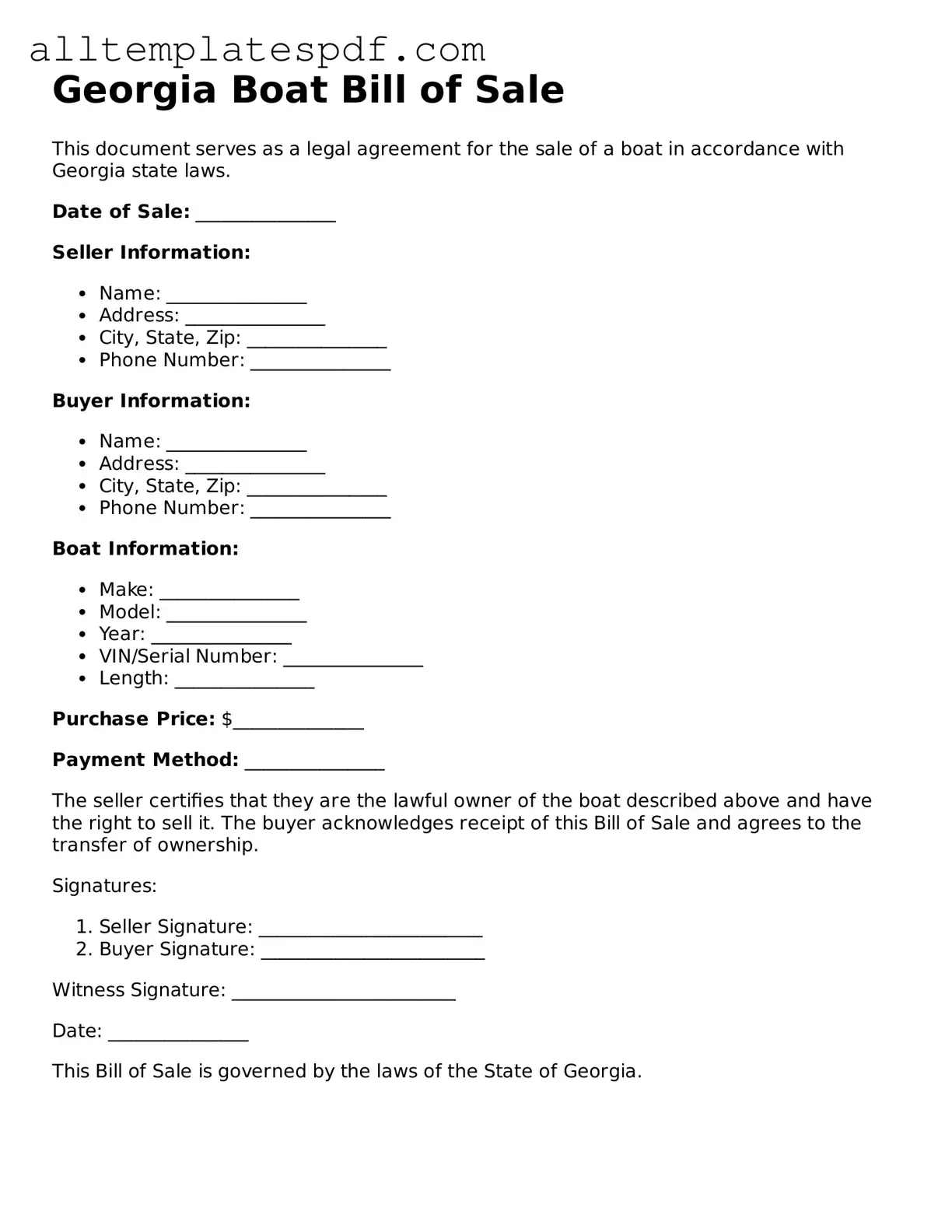Blank Boat Bill of Sale Template for the State of Georgia
The Georgia Boat Bill of Sale form is a legal document that records the transfer of ownership of a boat from one person to another. This form serves as proof of the transaction and includes important details such as the boat's description, sale price, and the names of both the buyer and seller. Completing this form is essential for ensuring a smooth ownership transfer, so be sure to fill it out by clicking the button below.
Open Editor

Blank Boat Bill of Sale Template for the State of Georgia
Open Editor
Fast and easy form completion
Complete Boat Bill of Sale digitally — fast and easy.
Open Editor
or
↓ Boat Bill of Sale PDF Form
